The 20th National Congress of the Chinese Communist Party was held from October 16 to October 22, 2022. Brookings experts reflect on the elite political gathering and what its outcomes mean for China and the rest of the world.
On the further concentration of power
 Richard C. Bush
Richard C. Bush
Nonresident Senior Fellow, Center for East Asia Policy Studies
The appointments to the Politburo and its Standing Committee confirm even more clearly than ever that Chinese President Xi Jinping’s top priority is to maximize his control of the Chinese Communist Party (CCP) system. He wants his men on his leadership team to lead the agencies responsible for maintaining control. It is no surprise, therefore, that that the Minister of State Security has become a Politburo member for the first time.
Xi was able to dominate personnel selection because he had gained control already of the military, the security agencies, the organization/personnel system, and the propaganda system. He had ignored established norms when they were obstacles to his building his power. Moreover, from the very moment that he became general secretary, he stressed the importance of national security (mainly domestic security) and built new institutions to carry out that priority. His negative definition of China’s threat environment provides a perfect justification to intensify control, and the United States and Taiwan are among the convenient “dangers” to which he can point.
As a result, he has disregarded the conclusions that Deng Xiaoping reached about the reasons for the dysfunction of the CCP system under Mao: concentration of power under one man. Ironically, I doubt that Xi’s father would have agreed with the system he has built.
So, under the Xi system, power is highly concentrated, the flow of information to the top is tightly constricted, and the risks of anyone challenging Xi’s view of reality based on objective information are high. The likely consequence is that Xi & Co. will become even more prone to “group think” than they already are; they will misperceive the reasons that the regime is facing difficulties and never blame its own policies; and miscalculate how China should respond.
What Public Dissent During the Party Congress Signals
 DIANA FU (@dianafutweets)
DIANA FU (@dianafutweets)
Nonresident Senior Fellow, John L. Thornton China Center
Several widely reported incidents of public defiance occurred during the Congress: the one-man protest on Beijing’s Sitong Bridge, “not my president” posters on several university campuses, and Hong Kong protesters outside of the Chinese consulate in Manchester, UK. These incidents were small-scale, rapidly disseminated then swiftly censored; and contained blatant mockery of paramount leader Xi.
The first two features — small-scale and rapidly disseminated online — are common to the Chinese tradition of popular dissent. However, the last feature — blatant attacks on the reign of China’s paramount leader — is unusual. Popular protesters in China have long learned to couch their resistance in the language of economic grievances and the law. They understand that to make their claims heard, they should focus on bread-and-butter issues while proclaiming unflagging support for the Party. But this time, three sets of dissidents broke from the usual script of defiance to directly criticize the supreme leader and the Party.
These three incidents, although representing only the polar extreme of dissent, tap into a broader undercurrent of societal discontent both within and outside of China that is pressing for the Party to address. In response, the Party has opted out of concessions, with state media opining that “lying flat is no way out” of the pandemic. Tencent has punished commentators of the bridge incident with loss of Wechat account access. And China’s wolf warrior diplomats proclaimed it their duty to use fists to protect their leader’s dignity. This signals that Xi Jinping 3.0 will likely continue favoring repression over concession when it comes to quelling dissent.
Beijing Sharpens its Focus on Taiwan
 RYAN HASS (@ryanl_hass)
RYAN HASS (@ryanl_hass)
Senior Fellow, Center for East Asia Policy Studies, John L. Thornton China Center
Party Congresses generally are about power, personnel, and national priorities. This year’s affair was no different. Delegates in Beijing last week certainly emphasized Taiwan as a priority, but far from the top or only priority. China’s leaders did not invoke any timelines for achieving unification. The language that Xi used in his work report on Taiwan was firm, but also largely familiar. Even his avowal not to foreclose the use of force echoed statements made by previous leaders. Such constancy should provide little comfort or complacency, though.
Near the end of the Party Congress, delegates amended the People’s Republic of China (PRC)’s charter to “resolutely oppose and contain Taiwan independence.” Alongside this amendment, China’s leaders hedged on two longstanding judgments about China’s strategic environment, first that “peace and development” are the trend of the times, and second, that China is facing a “period of strategic opportunity” to accomplish its national objectives. These longstanding judgments provided a basis for China to concentrate on domestic development while it sought to preserve a benign periphery conducive to China’s rise.
In contrast, Xi seems to have signaled that China no longer enjoys such conditions; China must instead embrace the need to struggle in the face of an increasing hostile external environment.
The implications of this shift for Taiwan may be felt in the coming years. Beijing appears to be developing a velvet hammer for the people of Taiwan – a set of policies designed to be comforting for those who embrace them, and hard for those who oppose them. To be clear, though, the velvet seems to be wearing thinner while the steel gets harder with each passing year. Beijing’s approach to Taiwan will be more evolutionary than revolutionary. The people of Taiwan have, after all, been confronting this challenge for some time. The scale of the challenge may grow in the coming years, though, as Beijing intensifies focus on Taiwan and brings more resources to its attempts to tilt developments in its preferred direction.
No course correction in sight as Xi cements his “core” status and his ideology as the driving vision for China
 PATRICIA M. KIM (@patricia_m_kim)
PATRICIA M. KIM (@patricia_m_kim)
David M. Rubenstein Fellow, Center for East Asia Policy Studies, John L. Thornton China Center
The 20th Party Congress demonstrated that none of Beijing’s recent troubles, from its domestic economic woes to popular discontent with its extreme zero-covid policies, in addition to the sharp deterioration of many of its foreign relationships, have dented Xi’s grip on power.
Xi’s work report reflected a mix of both triumphalism and a warning of turbulence ahead. And it underscored the huge perception gap between Beijing and its Western counterparts on China’s recent track record. Xi praised the Party for its achievements during the past five years, including successfully building a “moderately prosperous society” in time for its centenary, protecting the Chinese people to the “greatest extent possible” through its zero-COVID-19 policy, “restoring order” in Hong Kong, countering “Taiwan independence,” and adopting a “fighting spirit” to “safeguard China’s dignity and core interests.” Xi’s positive depiction of these policies contrasts starkly with views in Washington and capitals across Europe and Asia, where Beijing’s major policy choices of late have been seen as threatening or counterproductive at best.
Xi’s appeal for the Party to adopt a “fighting spirit” indicates Beijing understands that its path to “national rejuvenation” is not guaranteed and will require concerted effort. China’s top leader warned his compatriots that their country had entered a period of “strategic opportunities, risks and challenges” and that they must be “prepared to deal with worst-case scenarios.” To weather the storm, Xi’s answer was, of course, that the Party’s authority must be further strengthened (with himself at the core) so that China can boost its technological “self-reliance,” its “socialist rule of law with Chinese characteristics,” the PLA’s capabilities, and its soft power and international influence.
While the official confirmation of Xi’s third term and his status as the “core of the Party” at the Party Congress was expected, the unveiling of China’s top leadership body staffed completely with Xi loyalists suggests that the Party has fully granted Xi the absolute power he states is necessary to steer the country toward “national rejuvenation.” These outcomes suggest that Beijing will double down on its more aggressive posture at home and abroad that has characterized Xi’s rule since 2012, and that a major course correction by the Chinese political system is highly unlikely in the near-term future.
Five surprises about China’s new leadership lineup
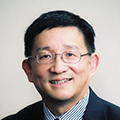 CHENG LI
CHENG LI
Director, John L. Thornton China Center
Given the opaque nature of Chinese leadership changes, observers expected many surprises at the 20th Party Congress, yet I’m still astonished by some of the appointments.
Surprise 1: I knew there would be minimal representation of women in the top leadership ranks, but I never thought that the Politburo would consist of all men and not a single woman, something that has not occurred in 25 years.
Surprise 2: I knew that Hu Jintao’s protégés, those leaders whose careers advanced largely through the Communist Youth League ranks (known as tuanpai), would face diminished representation in the leadership, but I never expected that the PSC or Politburo would not include at least one tuanpai leader.
Surprise 3: I predicted that Xi would not follow conventional norms, but I did not expect that the primary candidate for premier, Li Qiang, would lack experience serving as a vice premier, a prerequisite throughout PRC history.
Surprise 4: I knew it was not in Xi’s interest to identify a successor. I expected that he would need to promote younger sixth generation (6G) leaders, but I never predicted that the two younger leaders, Li Qiang and Ding Xuexiang, would both be positioned to serve in the State Council as premier and executive vice premier.
Surprise 5: I believed that the military leadership would change substantially, but I never thought that the two Central Military Commission vice chairman would be Zhang Youxia and He Weidong. Zhang, born in 1950, is the oldest in the leadership ranks, whereas He Weidong jumped two or three steps to assume this position. These appointments reflect the leadership’s focus on Taiwan.
The Brookings Institution is committed to quality, independence, and impact.
We are supported by a diverse array of funders. In line with our values and policies, each Brookings publication represents the sole views of its author(s).

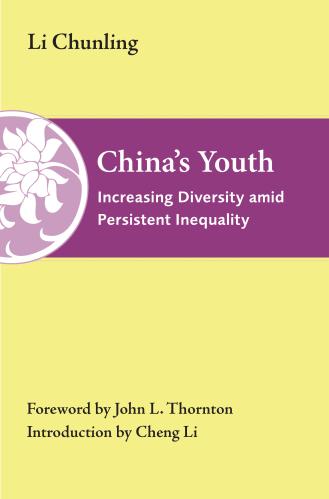
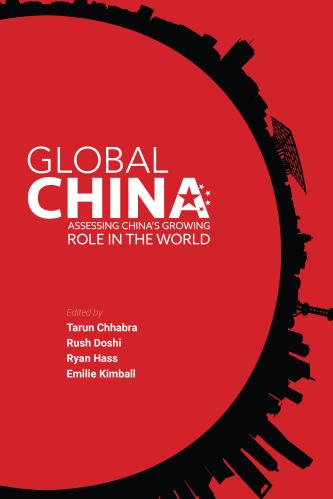
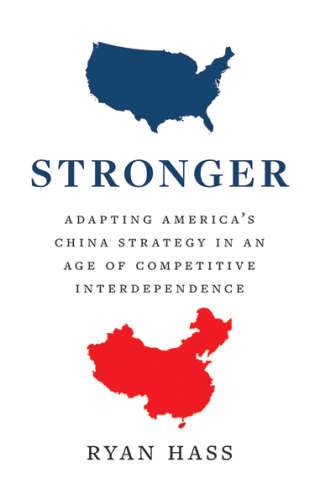
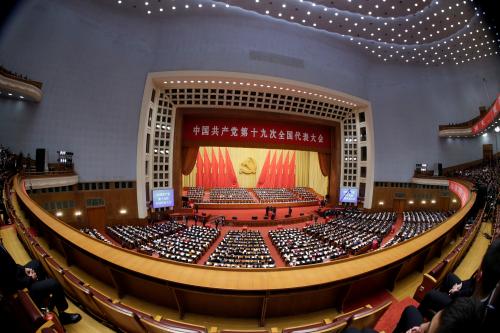
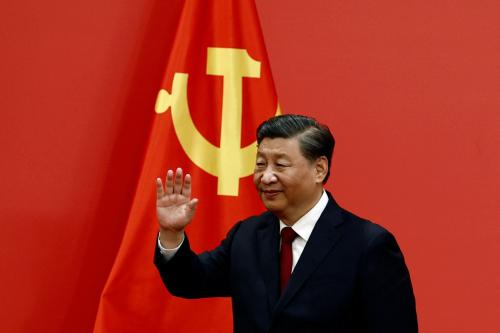
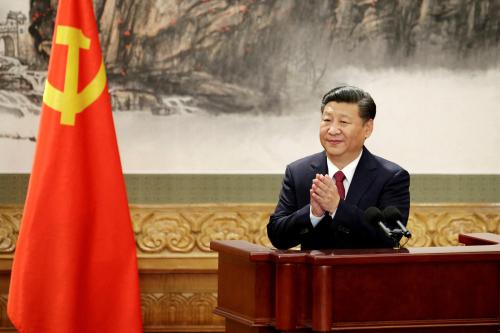



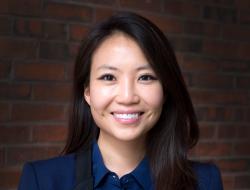
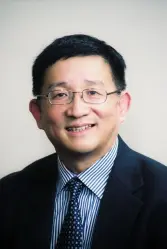


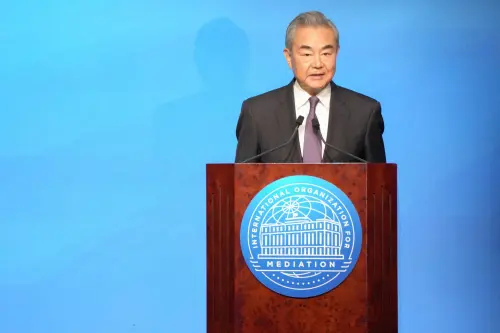
Commentary
Around the Halls: The outcomes of China’s 20th Party Congress
October 25, 2022